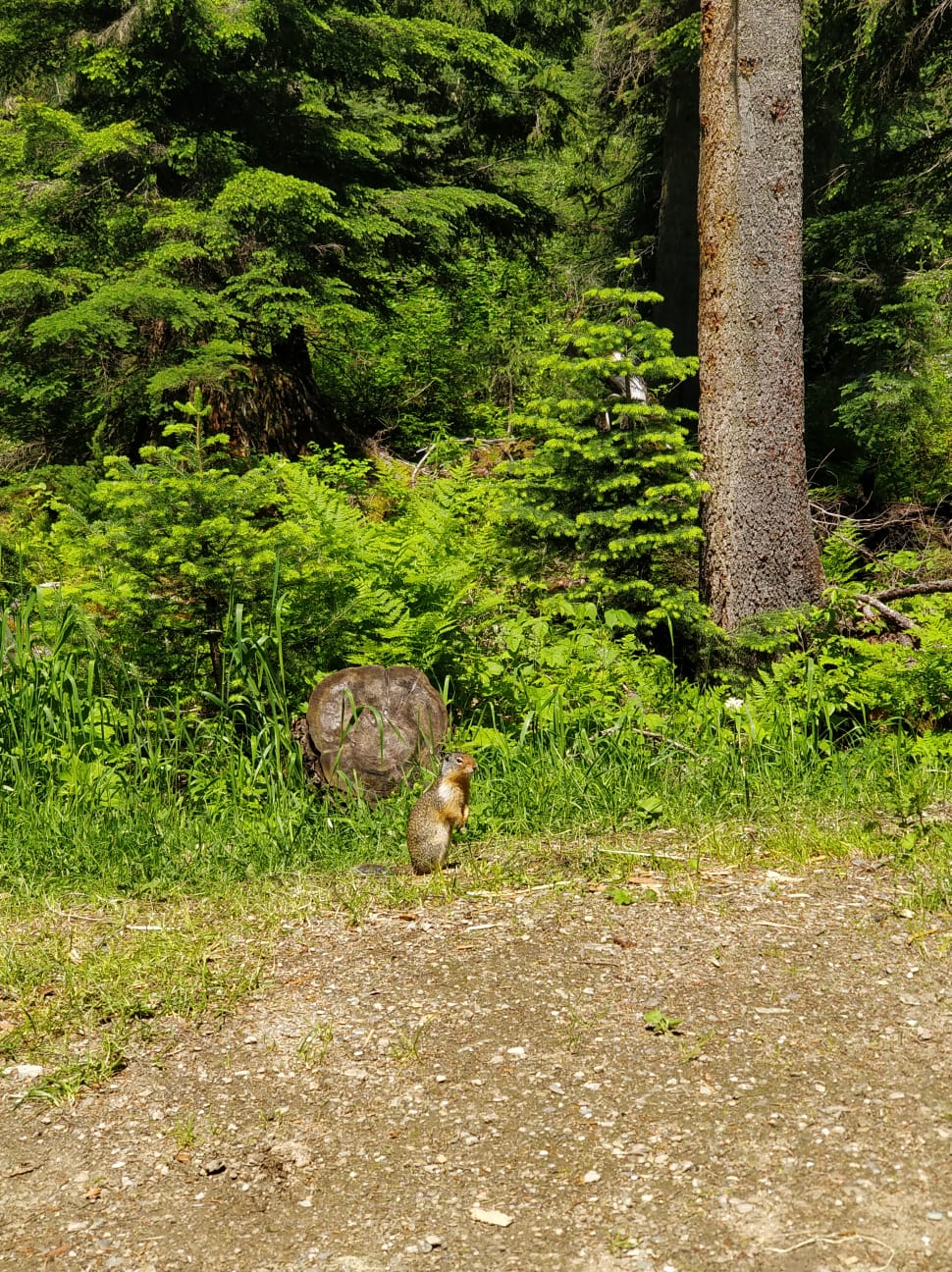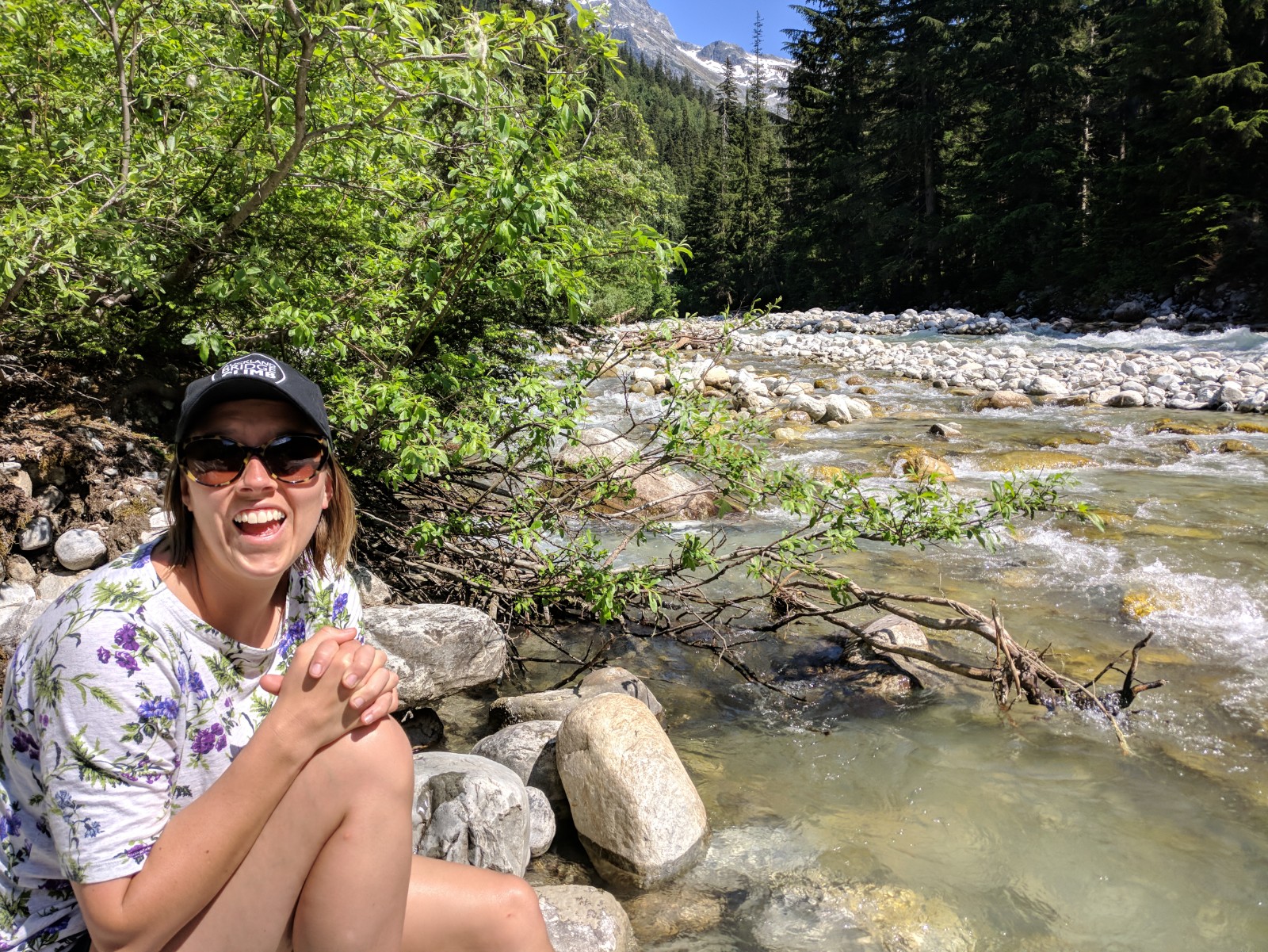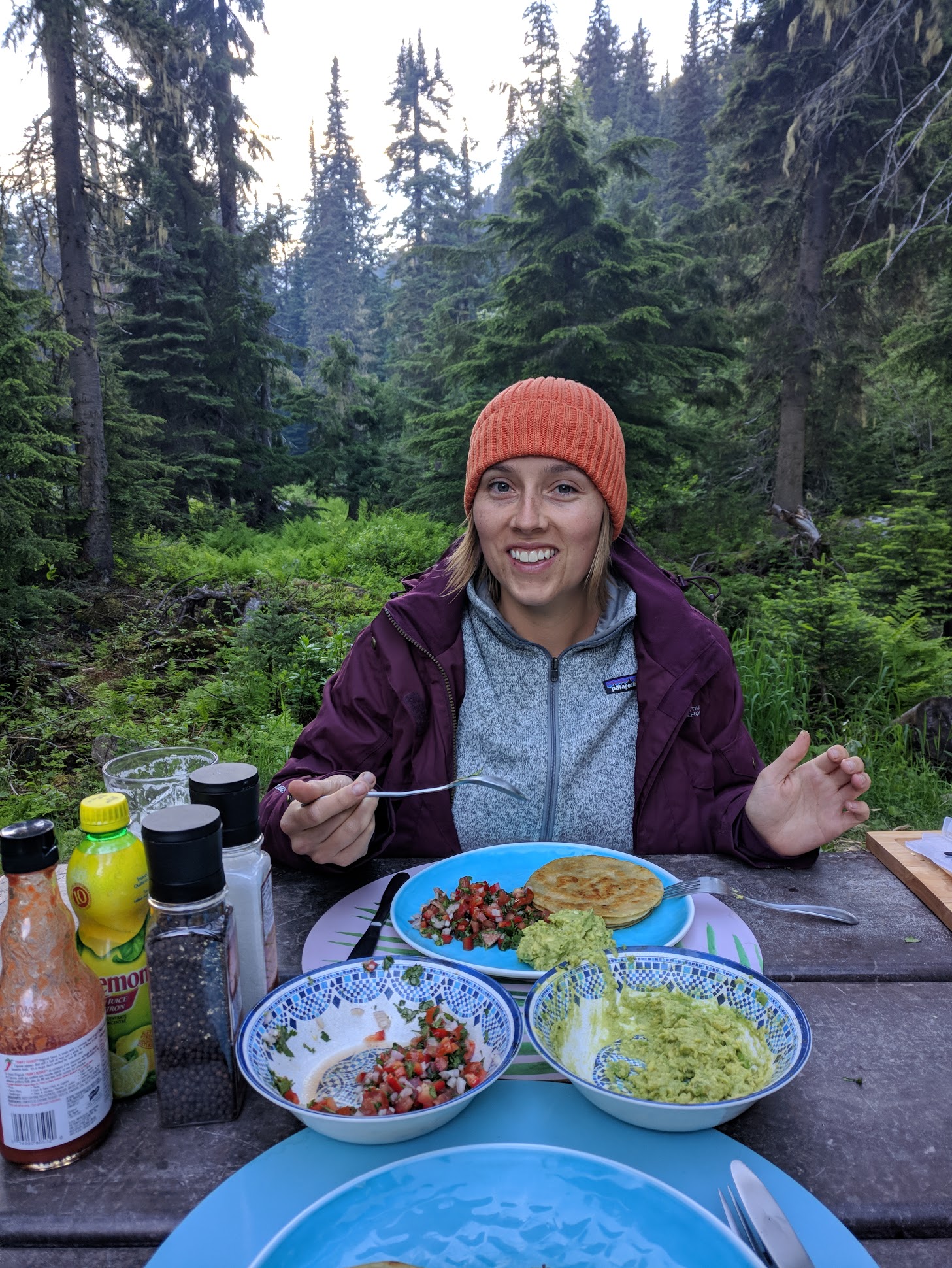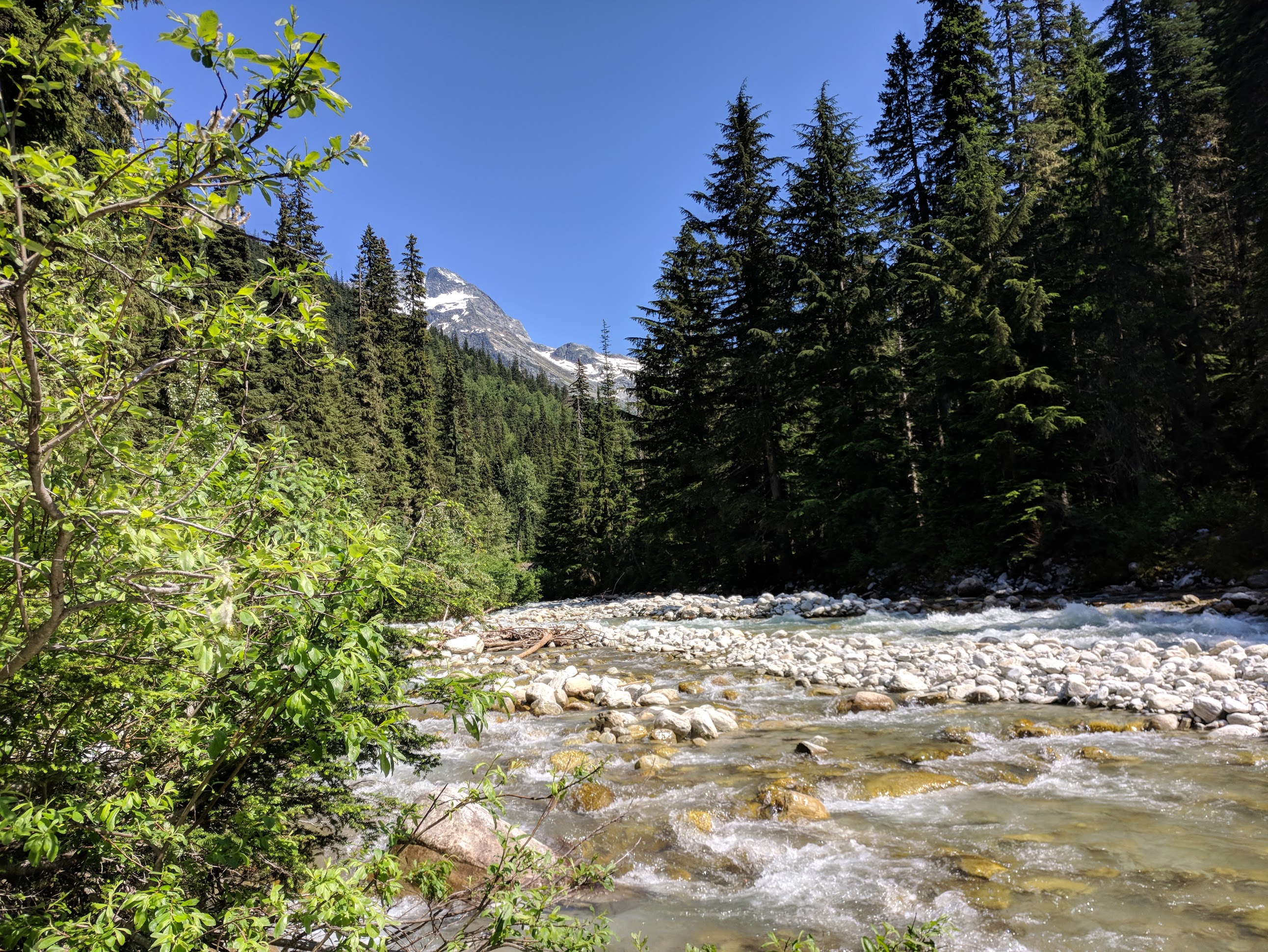We started the beautifully sunny day with french toast, yoghurt, and blueberries. Luxury camping breakfast! We decided that today we should just sit around, let the tent dry out, and relax. The hordes of flying insects made it a bit of a challenge to enjoy, but we sprayed on some bug repellant and got some good arm exercise in swatting them away. While we were sitting at the table, we watched a fat squirrel come and inspect our campsite. Hopefully we passed!

The bear alert from yesterday was made official with a sign posted on the bathroom wall. The recommendation for hiking in bear country is to hike in large groups (4 or more) and to carry bear spray. As there was a grizzly advisory in effect and we had none of the prerequisites for bear safety, we felt we were justified in hanging around the camp. We'll get some bear spray when we're on the road tomorrow.

We noticed that people love to have fires, regardless of whether there is a need or not. The campground was filled with plumes of smoke and the sound of crackling wood even at 10am when the sun had been out warming up the forest for five hours already.
The people in the campsite next to us left at about midday. They'd arrived after dark the night before in a big bus-like RV, and the father had spent the whole morning yelling at his young kids about how to properly tend the fire, amongst other things. I noticed that their fire was still burning after they left, and when I went over to make sure everything was okay I found a bunch of rubbish and some charred bits of steak left on the barbecue. Not bear aware campers at all!
We went for a walk down to the Illecillewaet river and stuck our toes in. The river is glacier run-off and carries silt that the glacier has ground up from the rocks it's travelling over. This gives it a bluish tinge, which pairs well with its freezing cold temperature!

The air has been full of floating cottony seeds, from a tall flax-like bush that's spread around the camp. Whenever a wind gust came through, it felt like we were downwind from a big fire, and the air was full of ash! The plant only seems to release its seeds around midday, as they were nowhere to be seen after about 6pm.
This evening we went to listen to a Parks Canada ranger tell us about the endangered Whitebark pine. This particular pine grows at the very upper limits of the treeline and is often very short and gnarled (krummholz) because of exposure to extreme weather at that altitude. The pine grows little cones, which are very sticky and hard to get into. The only animal that regularly eats the seeds is the Clark's nutcracker bird, which can extract up to 30 seeds a minute, and stores them in a little pouch on its neck. It then flies around and hides them in small holes in the ground, to eat later in winter.
The tree is having a hard time spreading, as other than the nutcracker spreading the seeds the only other way to get the cone to release them is with fire. In totally natural surroundings wildfire occurs reasonably regularly, but as us humans don't like huge fires we've (until very recently) done everything we can to stop them. Unfortunately, this has resulted in forests becoming much denser with thicker undergrowth. These factors mean that a wildfire which would usually just singe the trees has much more fuel, and can easily destroy entire forests. This devastated Yosemite in 2013.
Unfortunately, the Whitebark pine is also threatened by a particular type of fungal infection called White pine blister rust which grows around the tree and restricts the flow of nutrients, effectively strangling it. 50% of the Whitebark pine trees in Glacier National Park are already infected, and only about one in 100 trees are immune. Therefore, Parks Canada has a program in place to identify the resistant trees, and then collect the seeds and grow lots of new immune trees to plant back on the mountains.
To compound the tree's problems even further, they are also plagued by the Mountain pine beetle, which has seen a massive population boom due in part to climate change. These beetles can utterly destroy entire groves of trees in a matter of months. The campground just down the road from where we're staying (Mt Sir Donald campground) is currently closed due to a beetle infestation which has killed numerous trees, making it dangerous for people to camp under them.

Tomorrow we're heading up the road to Yoho National Park!


